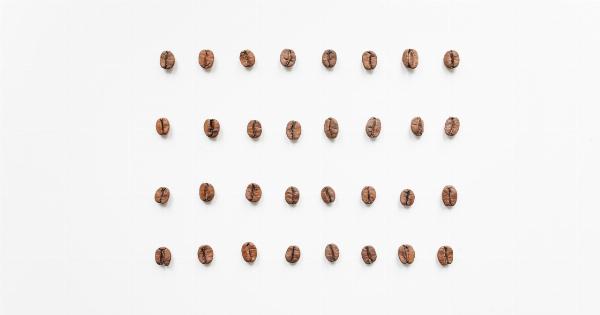Our liver is a vital organ that performs numerous essential functions in our body.
From detoxifying harmful substances, metabolizing nutrients, and regulating cholesterol levels to producing bile for digestion, the liver plays a crucial role in maintaining our overall health. However, due to poor lifestyle choices and exposure to various toxins, our liver can become overwhelmed and impaired. It is important to recognize the signs that your liver may need some extra support.
In this article, we will discuss five key indicators that your liver needs help and explore ways to improve its health.
1. Fatigue and Low Energy Levels
Feeling constantly fatigued and lacking energy despite adequate sleep and rest can be a sign of an overburdened liver.
When the liver is not functioning optimally, it cannot efficiently convert stored glycogen into glucose, leading to low blood sugar levels and subsequent fatigue. Additionally, a stressed liver can result in the build-up of toxins in the bloodstream, causing tiredness and decreased energy levels. If you find yourself frequently experiencing these symptoms, it’s time to pay attention to your liver health.
2. Digestive Issues
A poorly functioning liver can significantly impact your digestion. Bloating, gas, and indigestion are common signs that your liver needs assistance. The liver produces bile, which aids in the breakdown of fats.
When the liver is not functioning properly, it can result in a lack of bile production, leading to difficulty digesting fats and subsequent digestive discomfort. Additionally, an impaired liver can also contribute to other digestive problems, such as constipation and irritable bowel syndrome (IBS).
3. Jaundice
Jaundice is a condition characterized by a yellowing of the skin, whites of the eyes, and mucous membranes due to an accumulation of bilirubin.
Bilirubin is a yellow pigment produced during the breakdown of red blood cells and is normally processed and excreted by the liver. When the liver is not functioning properly, bilirubin can build up in the body, leading to jaundice. If you notice a yellow discoloration in your skin or eyes, it is essential to seek medical attention to address the underlying liver issue.
4. Unexplained Weight Gain
If you’ve been gaining weight without any apparent reason, it could be a warning sign that your liver is struggling. An overburdened liver can hinder the metabolism of fats, leading to weight gain and difficulty losing weight.
Moreover, impaired liver function can disrupt the regulation of blood sugar levels, contributing to insulin resistance and the storage of excess fat. By addressing liver health, you may experience improvements in weight management and overall well-being.
5. Skin Issues
Our skin is a reflection of our internal health, and liver imbalances often manifest through skin problems. If you notice persistent acne, eczema, psoriasis, or other skin disorders, it may indicate compromised liver function.
The liver plays a crucial role in eliminating toxins from our body, and when it becomes overwhelmed, toxins are expelled through the skin, resulting in various skin issues. Taking measures to support your liver can help alleviate these skin problems and restore your skin’s natural radiance.
Ways to Support Your Liver Health
Now that we understand the signs of a struggling liver, let’s explore five effective ways to improve its function and overall health:.
1. Maintain a Healthy Diet
A diet rich in fruits, vegetables, whole grains, and lean proteins is essential for optimal liver health.
Incorporate foods such as leafy greens, cruciferous vegetables, garlic, grapefruit, and green tea, which are known for their liver-detoxifying properties. Avoid or limit processed foods, sugary treats, alcohol, and excessive intake of saturated fats, as they can contribute to liver damage and impair its function.
2. Stay Hydrated
Proper hydration is vital for supporting liver function. Drinking an adequate amount of water helps flush out toxins and promotes optimal liver health.
Aim to consume at least 8-10 glasses of water daily and make it a habit to carry a reusable water bottle with you throughout the day.
3. Exercise Regularly
Engaging in regular physical activity is beneficial for overall health, including liver health. Exercise helps increase blood flow and oxygen supply to the liver, aiding in its detoxification processes.
Aim for at least 30 minutes of moderate-intensity exercise such as brisk walking, jogging, or cycling, five days a week to support your liver and maintain a healthy weight.
4. Reduce Alcohol Consumption
Alcohol is known to have detrimental effects on liver health. Excessive alcohol consumption can lead to inflammation, fatty liver disease, and even cirrhosis.
To support your liver, it is important to limit alcohol intake or, ideally, abstain from alcohol altogether. If you need assistance in reducing your alcohol consumption, consider seeking help from a healthcare professional or support group.
5. Include Liver-Supportive Supplements
Several supplements can aid in liver detoxification and support its overall function. Milk thistle, dandelion root, turmeric, and artichoke extract are commonly used to promote liver health.
However, it is essential to consult with a healthcare practitioner before starting any new supplements, as they may interact with certain medications or have contraindications.
By incorporating these lifestyle changes and supporting your liver health, you can improve its function and overall well-being.
If you are experiencing severe symptoms or have concerns about your liver health, it is crucial to consult with a healthcare professional for proper diagnosis and guidance.































